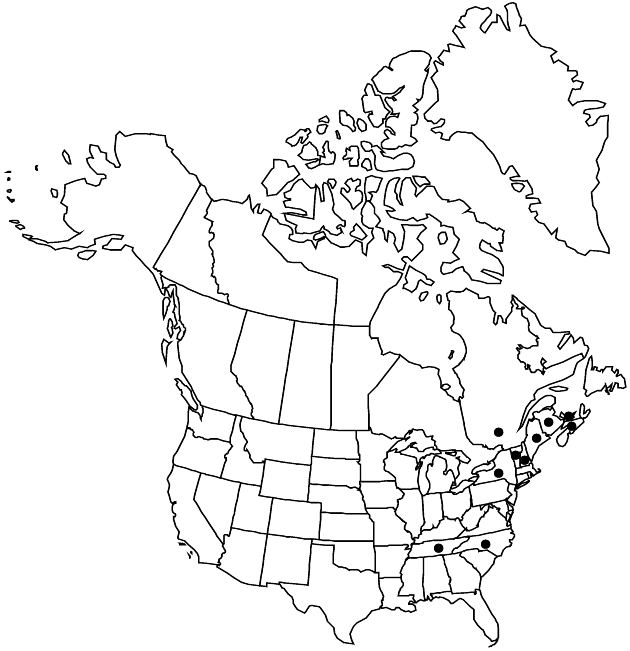Difference between revisions of "Packera schweinitziana"
Phytologia 49: 48. 1981.
FNA>Volume Importer |
FNA>Volume Importer |
(No difference)
| |
Revision as of 18:41, 24 September 2019
Perennials, 40–70+ cm, fibrous-rooted and/or rhizomatous (rhizomes weakly branched). Stems 1, glabrous or leaf axils sparsely tomentose. Basal leaves (and proximal cauline) petiolate; blades narrowly ovate to oblong-lanceolate, 30–70+ × 10–20+ mm, bases abruptly contracted to subcordate, margins usually serrate-dentate, sometimes subcrenate (apices acute). Cauline leaves gradually reduced (± sessile; lacerate to subcrenate). Heads 8–20+ in loose, corymbiform arrays. Peduncles bracteate, glabrous. Calyculi conspicuous. Phyllaries 13 or 21, light green (tips sometimes black), 5–8 mm, glabrous. Ray florets 8–13; corolla laminae 4–7 mm. Disc florets 50–70+; corolla tubes 3.5–4 mm, limbs 3–3.5 mm. Cypselae 1–1.5 mm, glabrous; pappi 5–5.5 mm. 2n = 44.
Phenology: Flowering May–Jul.
Habitat: Sunny, wet areas, meadows, swamps, ditches, roadsides
Elevation: 100–1800 m
Distribution

N.B., N.S., P.E.I., Que., Maine, N.H., N.Y., N.C., Tenn., Vt.
Discussion
Packera schweinitziana is rarely mistaken for any other taxon. It grows on slightly acidic soils and may reproduce vegetatively by branched rhizomes. The group of populations on Roan Mountain on the Tennessee-North Carolina border is disjunct from the main distribution.
Selected References
None.